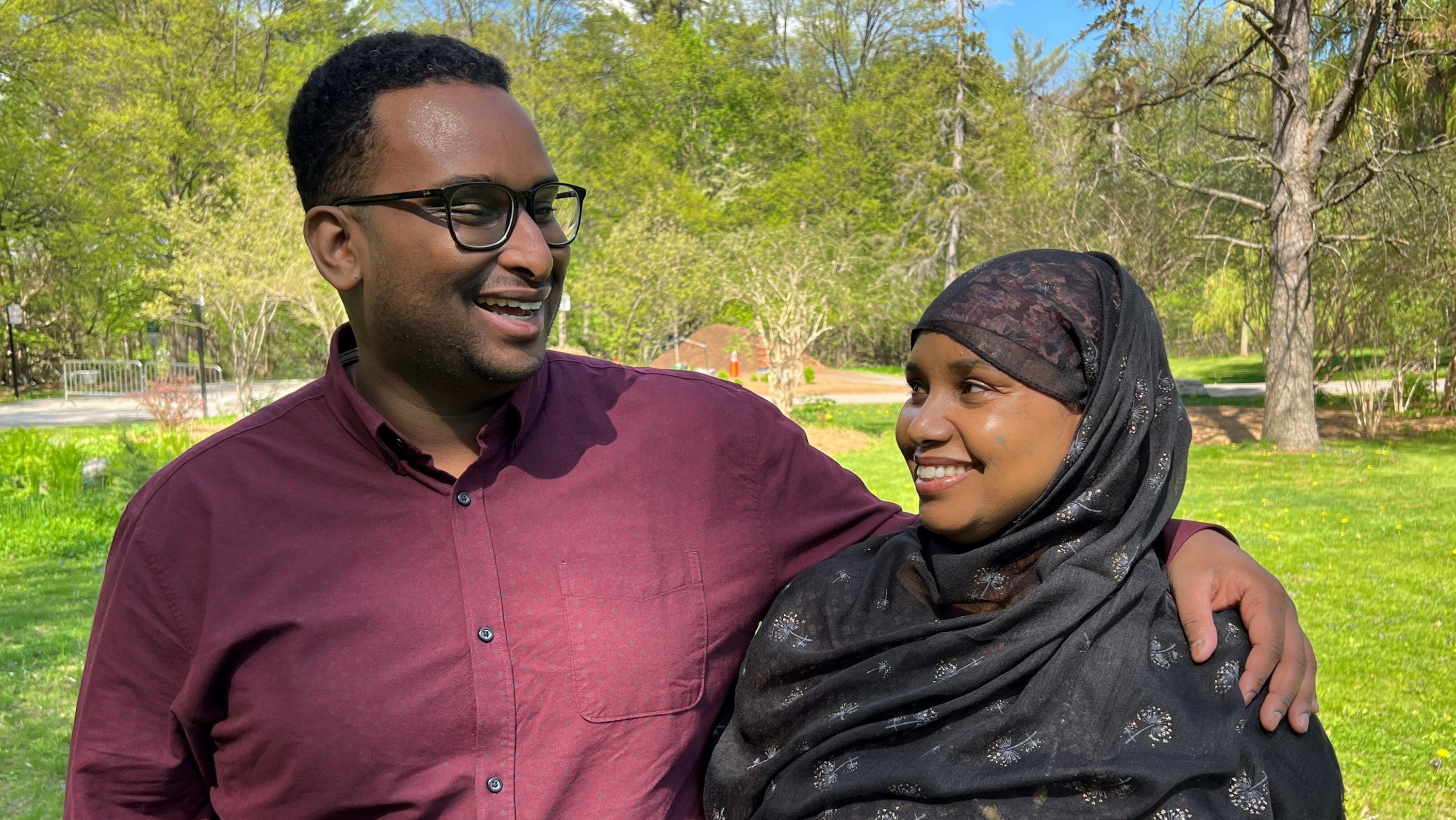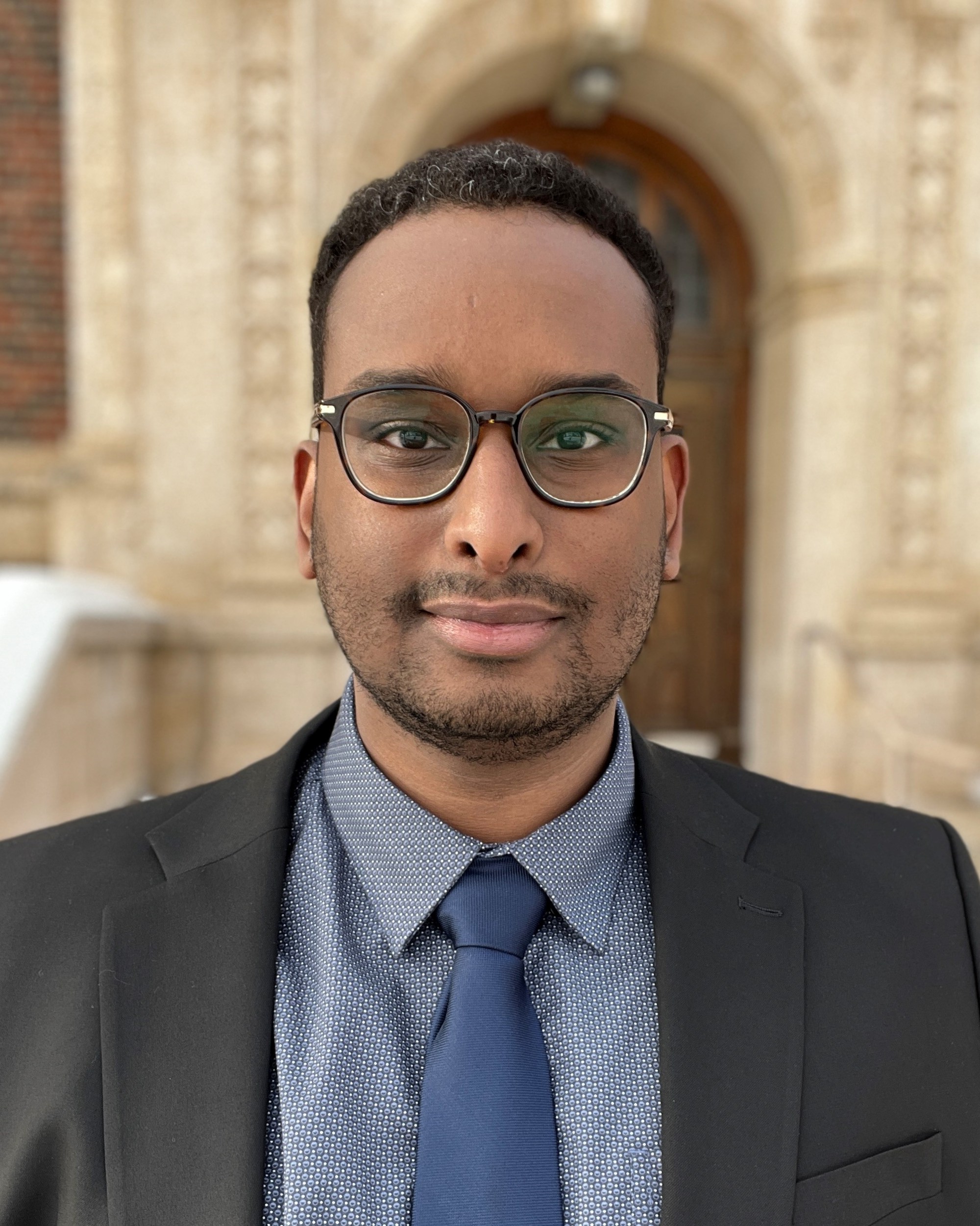When Yusef Yousuf was 10, he had a health scare that set him on a path to make medicine better.
He was playing soccer at lunch with his friends and took a tumble, fracturing his arm below the shoulder. His mother rushed him to the local hospital, where the doctor noticed something unusual on the X-ray: an unexplained growth that could be cancer. He told Yousuf’s mother that it needed to be surgically removed immediately.
Yousuf’s mother, Fardus Mohamed, listened carefully to the doctor and felt panic rising. Having moved to Canada from Somalia with her husband, Abdi Yousuf, a decade earlier, she spoke some English and got the gist of what the doctor was telling her. But he was condescending. She didn’t catch all the medical jargon and she didn’t like his pushy manner.
Instead of just giving in, she insisted on a second opinion.
Eventually Yousuf did go in for surgery to remove what turned out to be a fairly common bone cyst. The doctor at Sick Kids hospital took the time to carefully explain the situation to Mohamed before anything was done to her son. With a cast on his arm, Yousuf was soon back to kicking the ball around with the other kids.
Now 30 years old, Yousuf is about to graduate with his MD from the University of Alberta’s Faculty of Medicine & Dentistry and begin a residency in family medicine serving other newcomers to Canada.
“As somebody from a lower socio-economic community, I witnessed first-hand a lot of the health disparities in terms of access and language and cultural barriers when immigrant populations are dealing with medicine,” Yousuf says. “My motivation to go into family medicine was really to be an advocate for these patients.”
Better care for all
It wasn’t until Grade 11 that Yousuf started taking school seriously, but his mother was right there with him, keeping an eye on his grades, keeping in touch with his teachers and pushing back when the school guidance counsellor suggested vocational training. His mother knew he could pursue engineering, medicine — whatever he might wish. Yousuf soon realized science was his passion. He enrolled in honors biology and psychology, and then signed up for a master’s program in medical science at University of Toronto, with the aim of becoming a researcher.
On the first day of class, Yousuf looked around at the 200 students in the lecture hall and found his was one of only two Black faces. So he set out to help others join him.
He connected with other Black grad students and set up a club to mentor Black undergrads who might be interested in pursuing a master’s or PhD, and volunteered to help students who are Indigenous, Black, Filipino, economically disadvantaged or who have a disability to thrive in the health sciences.
Yousuf found he loved medical research and published several papers on how to preserve muscle after burns during his studies, but a few chances to take care of patients made him realize his true calling was in the community.
“What drew me to medicine was the ability to interact with patients, learn about their lives, and really be kind of a role model and advocate for them,” he says. “It satisfies my scientific curiosity as well, so it feels like the perfect mix for me.”
When Yousuf got into medical school at the U of A in 2018, he says he was nearly as happy about it as his mother. It seemed natural to follow the same model of advocacy for fellow Black students that he had already practised in Toronto. He and three other students — Ibrahim Sadiq, Anulika Nwakaeze and Adesewa Adeleye — founded the Black Medical Students’ Association in 2019.
They wanted increased Black representation in the student body and faculty, and enhanced training for future doctors. Their ultimate goal — better care for racialized communities.
“If there are more doctors who came from similar backgrounds such as my parents, then people like my parents are going to be able to have greater access to health care and have physicians who actually understand their background and their language and where they're coming from,” Yousuf says.

